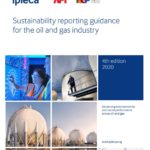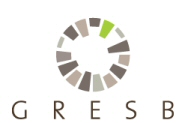The global food and beverages industry has merely average performance on social and environmental sustainability, according to the latest corporate responsibility industry report released by Oekom Research, a Munich-based sustainability rating firm. The 16 companies that qualified for comprehensive "Inside" Ratings (16 other companies with inadequate transparency or sustainability performance received more cursory "Outside" Ratings) earned an average grade of C, on a scale from A+ to D-.
Unilever (ticker: UN), which earned the top ranking, was the sole company to break above the C range, squeaking a B-. Bottom-rankers PepsiCo (PEP) and Sara Lee (SLE) were the only companies to break below the C range with D+ grades.
"One of the major challenges of the industry is the proper management of its supply chain, especially with regards to human rights and labor rights," writes Isabelle Reinery, an Oekom analyst, in the report she authored. "Even though none of the companies has found a comprehensive solution to this supply chain problem, most of them have at least accepted their responsibility and taken the first steps toward improving conditions."
"For example, in 2002, Starbucks sold 240 tons of coffee carrying a Fair Trade label; however, according to Starbucks, this made up less than 0.1 percent of total sales," added Ms. Reinery, who rated Starbucks (SBUX) with a C-, ranking it 12th of the 16 Inside Ratings. Fair Trade is a certification program that guarantees farmers in coffee cooperatives a sustainable price of $1.26 per pound for green (or unroasted) coffee, about twice the going rate.
Ironically, The Green Life, a nonprofit that promotes sustainability, highlighted this very example, citing it in naming Starbucks (SBUX) one of the ten worst greenwashers of 2003. (Greenwashing refers to representing environmental practices as more responsible than they are in reality.) Its Don’t Be Fooled report chides Starbucks "for failing to adhere to its Environmental Mission Statement by slipping from industry leader to laggard on Fair Trade, and for adopting a patchwork approach to sustainability . . . ."
Starbucks rebuts this characterization.
"Our fiscal 2003 Corporate Social Responsibility Annual Report indicates that we bought 2.1 million pounds of Fair Trade coffee last year–double the amount from the previous year," said Megan Behrbaum, Starbucks spokesperson.
However, Ms. Behrbaum declined to reveal how this compares to overall sales or the company’s targets for future Fair Trade commitment.
"Starbucks does not publish sales figures for any coffee or products sold in our stores as a percentage of our total sales," Ms. Behrbaum told SocialFunds.com. "We have not set targets for our future Fair Trade purchases, but continually seek new sources of high quality Fair Trade coffee to offer to our customers and business partners."
Ms. Behrbaum explained one potential reason for Starbucks’ poor showing.
"Unfortunately, due to the timing of Oekom’s survey review period, Starbucks was not able to participate–the information in this report was compiled independently by Oekom," Ms. Behrbaum told SocialFunds.com. "We believe this negatively impacted our overall rating."
However, Oekom lists Starbucks amongst the companies that "provided comments/additional information," and the report specifies that Inside Ratings offer two opportunities for feedback and comments.
The report also downgrades Starbucks for "not provid[ing] any information on freedom of association," though it does note that "10 of the company’s stores and a group of 11 maintenance mechanics and technicians at one roasting plant were represented by unions."
Ms. Behrbaum points to the company’s CAFE (Coffee and Farmer Equity) Practices program, developed in collaboration with Scientific Certification Systems (SCS), a third-party evaluation and certification firm. Indicator SR-HP2 addresses freedom of association and collective bargaining.
The report applauds Starbucks for using the Natural Step sustainability framework, a set of scientific and economic principles that promote sustainability, but notes that "there is no information on certification and/or coverage."
Posted on the Natural Step website is a case study of Starbucks’ program.
"Just today, we trained a group of employees on the Natural Step who are interesting in playing a role in our company’s efforts," said Ms. Behrbaum. "Tomorrow, a larger cross-functional group is holding a mid-year check-in to review our performance on these areas."



